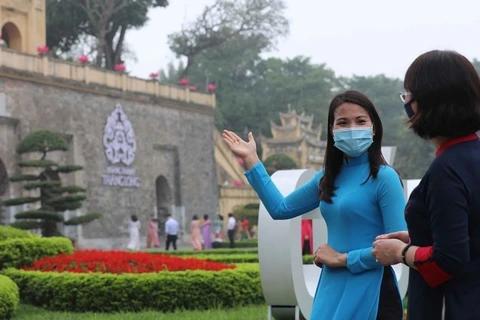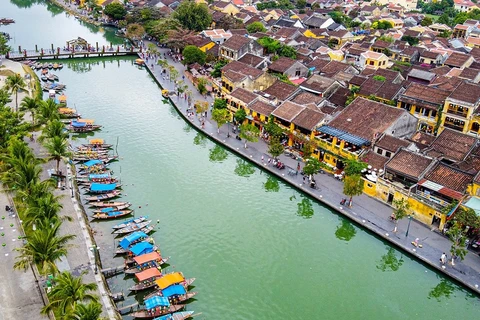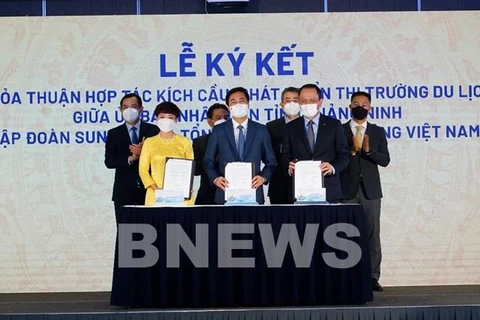Hanoi (VNA) – There is relief for Vietnam’s tourism industry as borders reopen March 15 after months of closure. Various COVID-19 restrictions have been eased to allow the resumption of international trade and travel, but several risk control measures remain in place.
A bumpy road still lies ahead for most tourism service providers, preventing them from returning to pre-pandemic-level operations.
The sector has an estimated 40,000 businesses and three million workers, including one million full-time and two million part-time staff. COVID-19 has forced 95% of travel agencies and nearly half of hotels to shut down and caused heavy losses to domestic airlines over the last two years, according to data from the Private Sector Development Research Board (Board IV) and the Tourism Advisory Board (TAB).
For businesses, removal of travel restrictions is already good news though all understand the fact that it doesn’t necessarily mean foreign tourists will visit right away.
Some worry that it may take longer than expected to bring back international visitors as businesses need time to build and advertise tours, while others are concerned about newly-introduced rules.
Vice President of the Vietnam Hotel Association Le Mai Khanh said lodging services, which account for up to 46% of the industry’s revenue, have seen very low room occupancy. Occupancy rates only reached 5% – 15% in some hotels, she said.
Pham Hai Quynh, Director of Van Hai Xanh Travel and Chairman of the Vietnam Community-based Tourism Association (VCTC), said there is rising concerns over a new rule that requires visitors to install the national COVID-19 mobile app PC-COVID for health declaration. The app does not have an English version.
The other thing is all users must use a Vietnamese phone number to receive a registration code for sign-up, he said, adding that it cannot be guaranteed that ones with an international number have access to automated roaming services.
It will be challenging for foreign visitors, he said, referring it as a new barrier for Vietnam to welcome back international arrivals.
As most of travel-related service providers have had to shut down or shifted to other business models because of COVID-19, travel agencies will have to check availability of these partners and re-build tours, Quynh noted.
Not to mention that all firms are struggling with labour shortages as most of their old personnel have switched jobs, he continued. To navigate through the post-pandemic period, they must manage to keep core personnel and hire new graduates for some vacancies like tour guides or event runners as a temporary solution to fill the gap, he suggested.
The Ministry of Culture, Sports and Tourism (MCST) have proposed the Government and local administrations design new support policies to bring back experienced personnel to the sector. According to the proposal, they will receive additional training to keep up with the market in the “new normal.”
Last year, tourism businesses were entitled to exemptions and reductions of up to 80% of taxes and fees while tour guides received unemployment financial aid.
Nguyen Minh Hang, Assistant Minister cum Director of Economic General Department at the Ministry of Foreign Affairs (MoFA), said that the MoFA has been assisting the MCST in ensuring safe reopening and organising tourism promotion activities overseas.
The MoFA has accelerated updates about new travel trends and analysed travel demand in foreign markets while remaining active in promoting Vietnam’s culture and destinations abroad, she added.
Additionally, Vietnam has restored its unilateral visa exemption for citizens from 13 counties, including the UK, France, Germany and Italy, as it had been applied before the pandemic. The country has also reopened its e-visa services, enabling the granting of e-visas to citizens of 80 countries who would be allowed to apply for 30-day, single entry

























